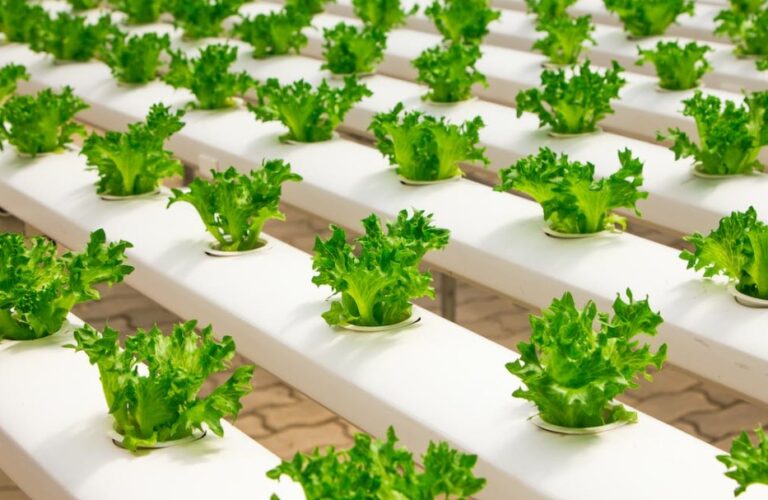A vibrant industry known as “FoodTech” has emerged as a result of the fusion of technology and food in a world that is driven by innovation. This quickly developing industry includes numerous applications designed to improve different facets of food production, processing, delivery, and consumption. FoodTech has the power to transform how we raise, prepare, and consume food by utilizing the latest technological advancements.
The term “food technology,” or simply “FoodTech,” refers to the integration of food science, engineering, and technology to develop novel solutions to problems facing the food business. FoodTech includes a wide range of technologies that streamline procedures, raise safety benchmarks, cut waste, and improve the general quality of the food products we consume.
Table of Contents
Key segments of FoodTech
- Precision agriculture
Crop cultivation has been revolutionized by FoodTech, and it is the backbone of our nation’s food supply. Drones, satellite photography, sensors, and other technology are used in precision agriculture to keep an eye on crop health, soil conditions, and weather patterns. This data-driven strategy promotes sustainable farming methods, increases production, and uses less resources.
- Food preservation and processing
Technology improvements in the food processing industry have produced goods that are safer, more nourishing, and more durable. By removing pathogens, preserving nutritional value, and extending shelf life, techniques like high-pressure processing, irradiation, and freeze-drying have been used to cut down on food waste.
- Alternative ingredients and nutrition
Thanks to FoodTech, it is now possible to investigate alternative ingredients that can accommodate a range of dietary requirements. The emergence of plant-based proteins, laboratory-grown meats, and innovative superfoods reflects the rising need for wholesome and sustainable alternatives.
- Smart packaging and traceability
Traceability technology allows for real-time tracking of a product’s path from manufacturer to customer. Smart packaging incorporates sensors and QR codes. Improved traceability increases food safety, quality assurance, and transparency, enabling customers to make educated decisions.
- Data analytics and personalized nutrition
FoodTech has the ability to provide personalized nutrition advice based on a person’s eating preferences, health objectives, and genetic make-up by using the power of data analytics and artificial intelligence. A comprehensive view of wellness is promoted by this nutritional customization.
- Online food delivery and meal kits
These have revolutionized how we access and enjoy our meals thanks to their ease. Following the COVID-19 epidemic, these platforms have become especially more important for maintaining food accessibility and reducing contact.
Benefits of FoodTech
- Improved food safety
One of FoodTech’s biggest benefits is its capacity to raise food safety standards. By reducing the danger of foodborne illnesses, technologies like pasteurization, high-pressure processing, and innovative packaging techniques protect the public’s health.
- Improved food quality
FoodTech uses cutting-edge processing methods to keep the nutritional value, flavor, and texture of foods while also improving their quality. For instance, freeze-drying protects the quality of fruits and vegetables so they are available year-round.
- Extended shelf life
FoodTech’s preservation techniques, such as modified environment packaging and vacuum packing, extend the shelf life of perishable goods. This results in less food waste, which is crucial in a world facing environmental issues.
- Sustainability and resource optimization
These are important in today’s environmentally concerned world, and FoodTech provides solutions that do just that. While the development of substitute sources of protein reduces the environmental impact of raising animals, precision agriculture reduces the consumption of water and fertilizer.
- Global food security
As the world’s population continues to grow, worries regarding food security are becoming more pressing. This problem is solved by FoodTech through increased agricultural yields, effective distribution, and decreased post-harvest losses.
- Economic growth and employment
The growth of FoodTech has created new economic opportunities and jobs, spanning fields such as agricultural technology, food processing, logistics, and software development.
Challenges and considerations
FoodTech has unquestionable advantages, but it’s important to recognize the difficulties and factors involved in putting it into practice. The digital divide affecting access to online food platforms, privacy concerns regarding personalized nutrition data, and ethical issues with lab-grown meats all call for careful study.
- Ethics of lab-grown meat
By providing a more ethical and ecological alternative to conventional cattle production, lab-grown or cultured meat has the potential to revolutionize the meat business. But concerns over consumer acceptance, its status as “real” meat, and potential long-term health impacts need to be addressed.
- Data privacy and personalized nutrition
Data privacy and security issues are raised by the gathering and use of personal information for nutritional advice. Users could be reluctant to disclose private health information out of concern for possible data breaches or misuse.
- Digital divide and accessibility
Although meal kit services and online food delivery platforms are convenient, there is a digital divide that could prevent some groups from using these services. Uneven access to food can be made worse by the fact that not everyone has access to smartphones or the internet.
Food and technology combination
The union of food and technology holds enormous promise in a world where technology influences every aspect of our lives.
FoodTech breaks through the conventional barriers between the culinary and technological worlds, ushering in a day when eating is safer, more sustainable, and more individualized.
As we move forward, the fusion of human inventiveness and technology expertise in the agricultural sector promises to transform our connection with food, sustaining both our bodies and our planet.
Read also: Beef, plant-based or cultivated: what is the climate impact of a burger?












